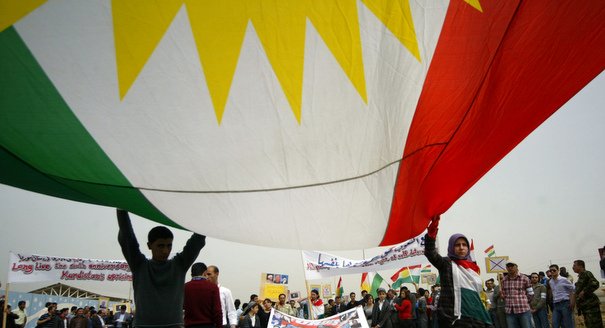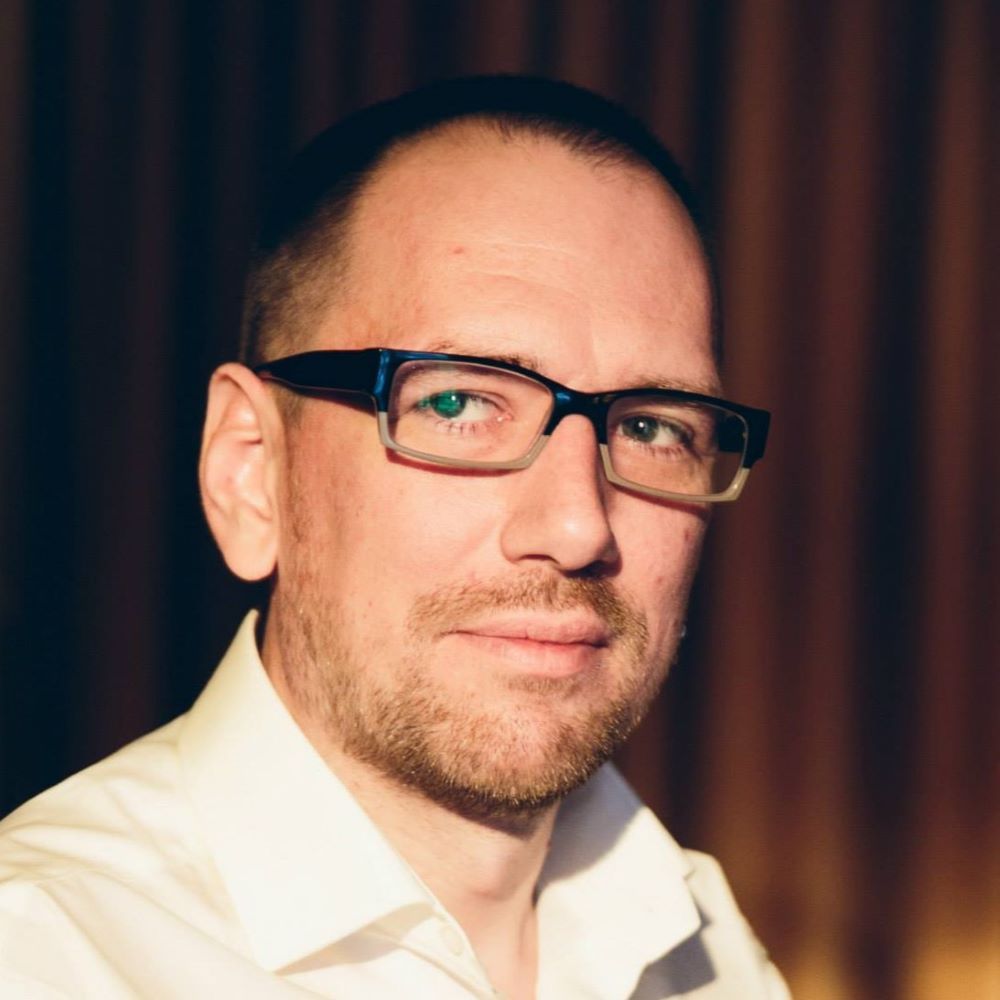As the Syrian army pulled out of several towns in the north and northeast of Syria in July 2012, Kurds found themselves empowered after more than forty years of dictatorship and political marginalization. In the face of the sudden retreat of the state security apparatus, the Democratic Union Party (PYD), the Syrian offshoot of Turkey’s secessionist Kurdistan Workers’ Party (PKK), and the Kurdish National Council, composed of sixteen parties, signed a political agreement that paved the way for the creation of a joint Supreme Kurdish Council. They also established “popular defense forces” intended to secure Kurdish gains.
Yet despite this demonstration of Kurdish cooperation, the operational capacity of the Supreme Kurdish Council is limited. It is hindered by an unequal distribution of power between the dominant PYD and the weaker Kurdish National Council, as well as their uneven representation in the three main Kurdish enclaves in northern Syria.
Some observers attribute the PYD’s success in seizing control of Kurdish regions to a possible secret deal with the regime. But the party’s emergence as the main broker in the Syrian Kurdish arena has deeper roots. It is better explained by the consolidation of the three separate Kurdish enclaves in northern Syria since the establishment of the Syrian state, the historic alliance between the Syrian regime and the PKK, and the traditional weakness of Syria’s other Kurdish political parties.
Three Enclaves, Diverse Histories
The Kurdish populations of Syria occupy three narrow zones along the Turkish border that are isolated from one another: Upper Jazirah, Jarablus, and Kurd Dagh, going from east to west. Their main urban centers in these regions are Qamishli, Kobane, and Afrin, respectively. Kurds also make up important urban communities in the cities of Aleppo, Damascus, and Raqqa. Some Kurdish tribes of Upper Jazirah have, moreover, maintained relations with their kin in Tur Abdin, Turkey, and Iraq’s Dohuk Province through marriages and commerce.
Historically, the Kurd Dagh and Jarablus areas have been more disconnected from wider Kurdish political activity than the Upper Jazirah region. Under the French Mandate for Syria, Upper Jazirah became a center of Kurdish politics due to the arrival of numerous tribal chiefs and Kurdish intellectuals escaping Turkish repression. As a result, Kurdish political activities there were initially oriented toward Turkey. Between 1927 and 1930, Syrian Kurdish leaders organized a military revolt in northeastern Turkey against the Turkish government, and they laid the foundations of a cultural renaissance movement in their Kurmanji dialect—all with the complicity of the French authorities.
Kurd Dagh and Jarablus evolved differently. In the former, Shaykh Ibrahim Khalil succeeded in gathering hundreds of Kurdish followers (murud) and launched a religious movement in the mid-1930s. The Murud movement was not only anti-French and religious in character but also aimed at challenging Kurdish landlords who had been co-opted by the mandatory power. The rebels ended the landlords’ economic and social influence and dismantled tribal structures in Kurd Dagh. Consequently, Kurds from Kurd Dagh regard themselves as more “modern” than their compatriots in the Upper Jazirah, where tribal and clan dynamics remained untouched. Kurds in Jarablus kept a neutral stance vis-à-vis the Murud and the Kurdish movements; although some tribal leaders were active in Kurdish politics, the region was largely unaffected by developments elsewhere.
The Founding and Splintering of the Kurdish Democratic Party of Syria
Upper Jazirah’s divergence deepened after the end of the French Mandate and the overthrow of the monarchy in neighboring Iraq in 1958. Iraqi Kurdish leader Mustafa Barzani had established the Kurdistan Democratic Party in 1946, and this spawned a sister organization, the Kurdish Democratic Party of Syria, which was established in Upper Jazirah. In 1958, Barzani built an alliance with Iraqi strongman Abdel Karim Qassem; but after Barzani’s alliance with Qassem broke down in 1961, hundreds of Syrian Kurds from Upper Jazirah crossed the border into northern Iraq to join Barzani’s forces in their revolt against Baghdad’s rule. The Kurdistan Democratic Party in Iraq maintained a strong influence in the Upper Jazirah region even after Barzani’s death in 1979.
The post–French Mandate Syrian state took measures against Upper Jazirah because Syrian Kurds entertained nationalist ambitions in the territory. Syrian officials began fighting the alleged “Kurdish danger” in this area. In 1962, Syrian authorities conducted a “census” in the neighboring al-Hasakah Province, depriving 120,000 Kurds of their citizenship on the grounds that they were not “true” Syrians but had illegally penetrated Syrian territory from Turkey and Iraq. Furthermore, in 1973, the Baath regime in Syria sought to create an Arab belt along the Turkish border. Thousands of Kurds lost their homes and properties; their villages were eventually occupied by Arab settlers whose lands had been submerged after the filling of the Tabqa Dam in 1975.
The Kurdish Democratic Party of Syria proved unequal to these challenges. The party witnessed its first split in 1970, mainly as a result of generational and ideological (that is, left versus right) differences. This paved the way for more divisions: by the late 1980s there were no less than ten Kurdish parties for a population of 1 million, although the differences in their agendas were minimal. Disillusioned, many Kurds left the parties, most of which drifted into irrelevance. It was within this context that the Kurdistan Workers’ Party, founded as a radical guerilla movement in eastern Turkey in 1978, quickly gained ground in Syria.
Rise of the PKK and Alliance With Assad
The Kurds became directly involved in the escalating tensions between Syria and Turkey. These tensions dated back to 1939 with the transfer of the Syrian sanjak of Alexandretta—an administrative district in the Ottoman Empire—to Turkish sovereignty; they deepened when, in the late 1970s, Turkey constructed dams on the Euphrates, threatening Syria’s water supply. Consequently, the then Syrian president, Hafez al-Assad, allowed the PKK to launch military operations against the Turkish army from bases in northern Syria. Even today, by some estimates, Syrian Kurds account for up to 25 percent of the PKK’s guerilla fighters.
Throughout the 1980s, the PKK’s call for a united and independent Kurdistan resonated across all social classes in the Syrian Kurdish community. For many, the PKK’s discourse of the “new Kurd” helped to restore, or reinvent, a shared Kurdish identity and placed Kurds on equal footing with Arabs. Syrian Kurds were also sympathetic to the armed struggle led by the PKK because it created the possibility of real political achievements, in contrast to the political activities of other Syrian Kurdish parties, which rarely bore fruit.
In Abdullah Öcalan, the charismatic leader of the PKK, Syrian Kurds found a second, almost mythical embodiment of Kurdish nationalism, alongside the figure of the late Mustafa Barzani. In regions such as Kurd Dagh and Jarablus, the PKK filled a vacuum left by other Kurdish organizations mainly based in Upper Jazirah and Damascus. Well-organized and benefiting from the support of the Syrian regime, the PKK’s officials created a highly effective network in those areas and managed to accumulate significant financial resources from Kurdish-owned businesses. Youths from poor areas such as Darbasiyah and Kobane came to see involvement in the PKK as a potential means of economic and social advancement. In addition, the complicity of the Syrian authorities with the PKK allowed organized gangs, trained by the PKK, to control the lucrative illegal traffic in drugs and weapons across the Turkish-Syrian border.
From Alliance to Antagonism and Back Again
The alliance with the PKK was not without cost for the Syrian government. The relative freedom of action granted to the PKK led to a revival of Kurdish identity and the strengthening of Kurdish nationalism in Syria. The most obvious political consequence of this dynamic was the adoption by new parties such as Yekitî (Unity) of the expression “Syrian Kurdistan,” which was used to refer to northern Syria, as opposed to the traditional “Kurdish regions of Syria.” The strategic cooperation between a “minority client” and a “patron state” also turned out to be extremely risky for the PKK. Threatened by the Turkish-Israeli alliance of 1996 and dependent on water from the Euphrates, Syria eventually succumbed to Turkish pressure to withdraw all support for the PKK and expel Abdullah Öcalan from Damascus.
Following the death of Hafez al-Assad in 2000 and his replacement by his son, Bashar, relations between Syria and the government of Turkish prime minister Recep Tayyip Erdoğan began to improve rapidly. Dozens of PKK activists based in Syria were handed over to Turkish authorities, while former PKK fighters returning to Syria were given prison sentences ranging from one to ten years. Despite this context of adversity, Syrian PKK militants established the Democratic Union Party, or PYD, in 2003, with two objectives: escaping state repression and maintaining the support of the PKK’s thousands of members and sympathizers.
Since its establishment, the PYD’s relations with the Syrian regime have remained ambiguous. While throughout the 1990s Damascus promised Ankara that it would fight the PKK’s presence in Syria, Bashar al-Assad maintained various channels of communication with the PYD.
When the Syrian uprising erupted in March 2011 and Syrian-Turkish relations collapsed, Assad reversed course. He allowed PYD leader Muhammad Salih Muslim to return to Syria and encouraged the PKK to reinforce its presence in the northern part of the country. Thirteen years after Öcalan was arrested and imprisoned by the Turkish government, the Syrian regime and the PKK again found themselves in an alliance of necessity.
Toward the Consolidation of a Syrian Kurdistan?
The partial withdrawal of Syrian security forces from northern Syria in the summer of 2012 allowed the PYD to become the main political actor in those regions. Its militias have assumed control of main roads, border crossings, and some administrative functions in Afrin, Derik, and other small towns and villages. In parallel, the PYD has agreed to cooperate with the Kurdish National Council in other important urban centers such as Kobane and Amuda.
Yet there is an unbalanced power relationship between the two camps of which both sides are aware. Thanks to its financial resources, traditional popular support in Kurd Dagh and Jarablus, preexisting networks, and early establishment of armed militias, the PYD has recovered its centrality within the Kurdish arena in Syria.
The PYD’s hegemony is, however, not without its challengers. Kurds in some “liberated” areas have increasingly expressed their disappointment with the authoritarian behavior of the PYD/PKK, reminiscent of the Syrian regime’s record. Intervention by Iraq’s Kurdistan Regional Government—in particular its president, Massoud Barzani—as the “protector” of Syria’s Kurds, and warnings from Turkey that it may intervene militarily against PYD bases in the border region, have also impeded PYD aspirations to dominate the three Kurdish enclaves.
At most, the PYD and Kurdish National Council will close ranks in the face of external dangers while continuing to compete for influence in the various Kurdish enclaves. This might create a pattern of patchwork influence similar to what has developed in northern Iraq, where the Kurdistan Democratic Party and the Patriotic Union of Kurdistan dominate different areas, but perhaps without the full autonomy that the Kurdistan Regional Government has achieved.
Consolidation of Kurdish identity and autonomy in Syria may seem unstoppable at the moment. But the movement toward autonomy may be impeded by the social variations that predate the establishment of the Syrian state, and by the resulting divergence in political trends and uneven distribution of strength among the Kurdish political parties in the three enclaves in northern Syria.
Jordi Tejel is a research professor in the Department of International History at the Graduate Institute of International and Development Studies in Geneva.



